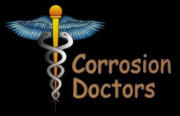Drugs and dreams
All the most commonly prescribed drugs for mental and emotional disorders affect dreams, typically via their effects on REM sleep. Under healthy conditions REM sleep ‘turns-on' when activity levels of the biogenic amines (e.g. noradrenaline) decrease and activity levels of acetylcholine increase. It is therefore not surprising to find that drugs that increase cholinergic activity generally tend to increase REM sleep and dream recall. (reference)
People on the nicotine patch, for example, often report to me that they are dreaming more and that their dreams have become vivid and intense. Currently available treatments for Alzheimer's Disease (donepezil, rivastigmine, galantamine and memantine) are all fundamentally designed to increase forebrain cholinergic activity. All of these drugs have been associated with reports of increased dream recall and more vivid dreaming. (reference)
Some drugs can influence REM sleep and dreaming indirectly via their effects on NREM sleep-especially slow wave sleep (SWS). To the extent that SWS and REM mutually antagonize or inhibit one another's physiologies suppressing one should lead to the dis-inhibition of the other. Most currently prescribed hypnotics, such as the benzodiazepines and Z-drugs suppress SWS.
See also: Dreams and brain disorders, Dreams as a source of inspiration, Essential oils, Food and dreams, Hypnagogic state, Neuroprotective agents, Sleeping brain, Sleep deprivation

Connect with us
Contact us today